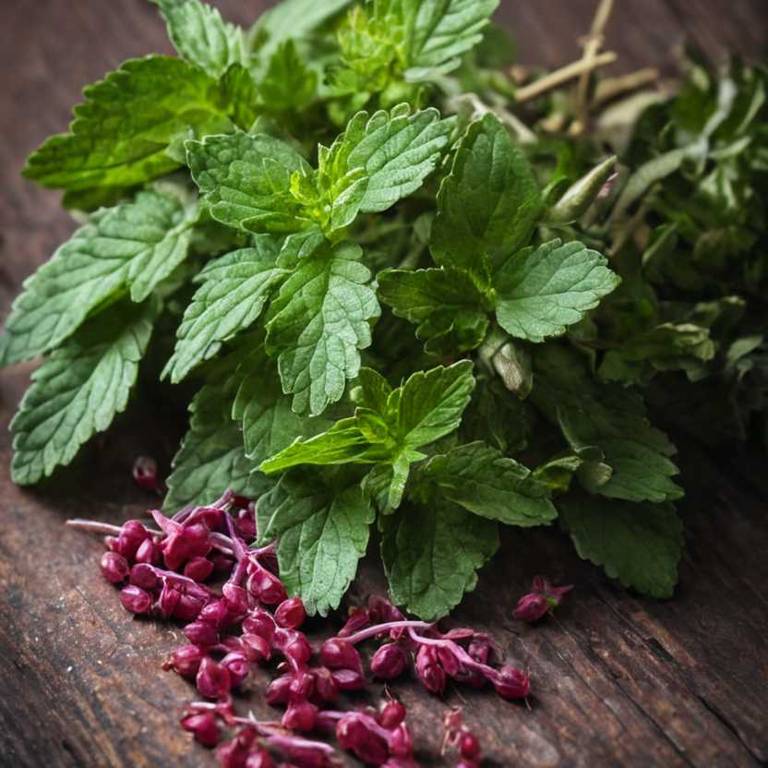Blackcurrant (Ribes nigrum)
Blackcurrant (Ribes nigrum) is a member of the Grossulariaceae family, native to Europe, Asia, and North America. Traditionally, its fruits, leaves, and bark have been used for decoctions, infusions, and poultices.
This herb is particularly valued for its anti-inflammatory, astringent, and bitter actions, and has a long history of use in european herbal medicine, native american herbal medicine, and japanese kampo medicine.

Quick Facts / Key Information
| Common Name | Blackcurrant |
|---|---|
| Scientific Name | Ribes nigrum |
| Plant Family | Grossulariaceae |
| Genus | Ribes |
| Species | nigrum |
| Native Range | Europe, Asia, North America |
| Plant Parts Used | Fruits, Leaves, Bark |
| Primary Medicinal Actions | Anti-Inflammatory, Astringent, Bitter |
| Primary Traditional Systems | European Herbal Medicine, Native American Herbal Medicine, Japanese Kampo Medicine |
| Historical Preparation Methods | Decoction, Infusion, Poultice |
Botanical Identity
- Scientific Name
- Ribes nigrum
- Common Name
- Blackcurrant
- Synonyms / Alternative Names
- Black Currant, Black Currant, European Blackcurrant
- Plant Family
- Grossulariaceae
- Genus
- Ribes
Botanical Description
- Growth Habit
- Perennial herbaceous plant.
- Height
- It typically grows to a height of 1 to 2 meters.
- Leaves
- Opposite decussate leaves with broadly ovate blades, upper surface dark green, lower surface lighter green, bearing distinct stomatal bands along the midrib.
- Flowers
- Inflorescence of clustered flowers with actinomorphic symmetry, each flower having five purple-black petals with yellow staminodes and a superior ovary.
- Stems
- Erect, woody, branched, with opposite, pubescent, and angular surface characteristics.
Traditional Uses / Historical Use
Traditional Systems
- European Herbal Medicine
- Native American Herbal Medicine
Historical Preparation Methods
- Decoction
- Infusion
- Poultice
- Powder
Medicinal Actions
- Anti-inflammatory
- As described in traditional systems, a warming anti-inflammatory, for irritation-related applications.
- Astringent
- In herbal texts, considered a mild astringent, in tissue-toning contexts.
- Bitter
- Historically regarded as a calming bitter, in appetite-focused contexts.
- Tonic
- Traditionally described as a moderate tonic, for foundational support.
Active Compounds
- Flavonoid
- A chemical class commonly identified in plant tissues, especially flowers and leaves.
- Tannin
- High-molecular-weight phenolic compounds found in many plant species.
- Phenolic Acid
- A class of aromatic plant compounds commonly found in leaves, seeds, and stems.
Modern Research Overview
Scientific literature concerning this plant spans multiple areas, including phytochemistry and laboratory research. Detailed analysis of published studies is not included at this time and will be added as part of future editorial expansion.
Safety & Contraindications
- General Precautions
- Precautionary considerations have been reported in relation to this herb.
- Contraindications
- Available information does not clearly establish contraindications for the use of this herb.
- Allergies
- Reports of allergic reactions to this herb are not well documented in available sources.
- Drug Interactions
- The potential for interactions with prescription medications has not been extensively studied.
- Toxicity
- Toxicity related to this herb has been documented in available sources.
- Pregnancy & Breastfeeding
- Safety during pregnancy and breastfeeding has not been well documented.
Preparation & Usage Methods
- Infusion
- Infusions are commonly prepared using hot water to release aromatic and soluble components.
- Decoction
- Plant parts are gently boiled in water to release soluble constituents.
- Poultice
- Fresh or dried plant material is applied externally to the skin.
- Powder
- Plant parts are dried and mechanically reduced to a powdered form.
- Tincture
- Plant material is macerated in alcohol to create a concentrated liquid extract.
Growing, Harvesting & Storage
Growing / Cultivation
- Soil
- Prefers loamy soil with well-drained conditions. Typically grows best in organically rich soils.
- Sunlight
- Thrives in partial sun. Tolerates full sun to partial shade.
- Watering
- Prefers consistently moist soils. Tolerates variable moisture levels.
Medical Disclaimer
The information provided on this page is for educational and informational purposes only. It is not intended to diagnose, treat, cure, or prevent any medical condition. Always consult a qualified healthcare professional before using any herb for medicinal purposes.